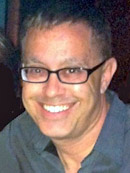
THE BRIDGE TO COLLEGE
Finding College “Fit”
By Robert A.G. LeVine

Learning isn’t really dependent upon a school or its classes or teachers. It is actually about the individual student. Regardless of what is presented, do you learn anything well? Do you go beyond what is presented in class and pursue things that are not spoon fed? Do you rethink the paradigm and pursue a new state-of-the-art?
Success – in school and in life – is founded upon the best possible environment for you. Unfortunately, the term “college fit” is poorly defined and erratically applied.
At UCA, we utilize four factors in determining fit: the structure of the institution; the structure of the curriculum; the on-campus culture; and the opportunities and limitations of the location.
Although seldom considered, the structure of the institution affects your education significantly. School size matters in terms of both student-professor interaction and social connection. However, beyond size, few people pay attention to how the structure of a school determines your environment.
At UCA, we consider schools as either “castles” or “open fields.” Castle schools are universities which offer several “specialty” schools plus a general liberal arts school focusing on the arts and sciences. For example, the University of Pennsylvania offers the Wharton School of Business, the School of Engineering and Applied Science, the School of Nursing, and the College of Arts and Sciences. NYU is organized into 10 undergraduate schools; USC offers 23 schools and divisions. Think of them as housing much of their education within walls, while their broader curriculum is found outside in the courtyard.
Open field schools do not utilize sub-schools; everyone enters college and then picks their majors. Whom you meet and what you study will be more diverse than within a castle’s walls. Harvard, Yale, Princeton and Stanford are liberal arts colleges which promote breadth of study, not just career paths.
The experience at each style of university will be different. When you study within a castle, you are immersed with students of similar career interests and take classes with similar academic focus. Within a castle, you are likely to “go deep.” At an open-field college, where all students attend one school then select a major after studying for a year or two, you will study broadly.
You should also consider the school’s term structure. Semesters split the school year into two pieces. Quarters split the calendar year into four pieces: three during the normal school year, plus a summer quarter (which may or may not be optional). A Block Plan provides one course at a time: study for one month, take a final exam, rest and repeat. Co-op schools send students into internships – without classes – for one to four terms.
Beyond the institutional structure, consider each school’s curricular structure. How many classes will you take? At Harvard, I took 32 classes in four years. At Northwestern, students usually take 45 to 48 courses. How many courses does a major require, and what are those courses? What one school includes in a business degree is not the same as at another. Are there distribution requirements beyond the major? In an Open Curriculum (for example, Brown University), there are no significant requirements. In a Core Curriculum, there are several courses required in many core areas; Columbia requires studying in 6 Core areas and offers 4 Core electives. In a school that promotes General Education, the distribution requirements vary between few and many.
Campus culture makes a big difference in your mood and thus also in your performance. Do you like competitive American sports? Do you want to be around people who drink alcohol, or not? Do the school’s students primarily prefer academics, or do they like their academics to be joined by robust extracurricular activities? Are the students politically active, or religious?
Finally, do not underestimate the effect of location. Is the local airport a hub, or will you need multiple flights to arrive and depart (and also perhaps long journeys to/from the airport)? Are there opportunities for education and career immersion nearby? No college has robust business internships on campus, so if there’s no society at your fingertips, your opportunities will be limited. If you like museums and theater, are they available? If you like the outdoors, will the concrete jungle of a big, metropolitan city fuel you appropriately? Is there public transportation, and is it easy to use?
We want the best for you. Understand what things work best for you, then find schools that provide those things.
Robert LeVine is the founder and CEO of University Consultants of America, an independent educational consultancy assisting students around the world with applications to colleges, universities and graduate schools. For more information, call University Consultants of America, Inc. at 1-800-465-5890 or visit www.universitycoa.com